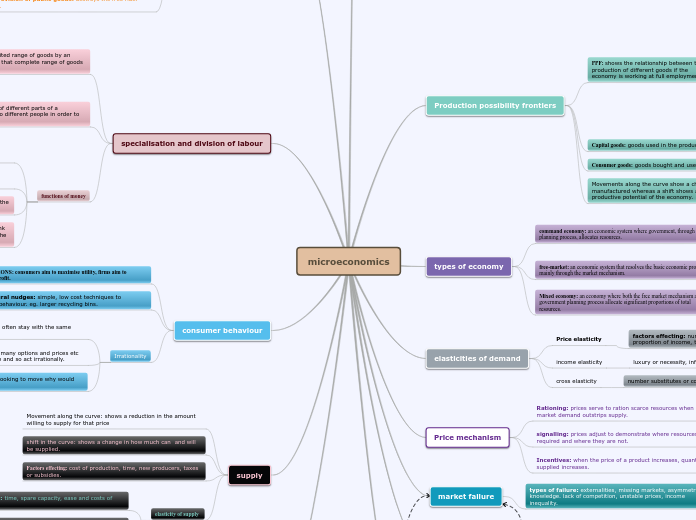Walmart
What lies ahead?
Scope?
Other
Acquisitions
Going green
Use of Technology-AI, Big Data, ML and blockchain
A device is just a proxy for what really matters — getting to know your customers. Devices provide context, helping us learn what matters to a consumer in a particular location and at a particular time. Being agile and flexible by using numerous point of contacts such as social media and leveraging on the useful information gathered, Walmart could be proactive in sensing the new trends. It make its already in place techniques water proof by using block chains. Having 3 times the revenue of that of Amazon, Walmart must enter into new horizons using its muscle and legacy and fend off upcoming competitors such a s Amazon and Alibaba.
A device is just a proxy for what really matters — getting to know your customers. Devices provide context, helping us learn what matters to a consumer in a particular location and at a particular time.
Global-connectivity
Customers all over the world now know, and can see, what people in other countries have, and they want access to it all. And they want it now. Creating an online presence sense the customer needs and act instantly by catering them with the goods.
Tap untapped markets such as India, Indonesia etc
Now that Walmart is lunging into online, and as online rules are much more relaxed than regulations fro Brick and Mortar store, it makes absolute sense that Walmart launches into countries which are growing tremendously such as India and Indonesia. The e commerce market is still not mature and Walmart should get into a position of taking a big piece of the cake.
What is Walmart doing about it?
Supply Chain to Blockchain
For finding out the source of items which can cause potential disease, items such as fruits, it used to take Walmart almost eight days, now, using blockchain this tracking would be a breeze. Collaborating with IBM, Walmart is already running pilot tests.
On-time, in-full (OTIF)
On-time, in-full (OTIF) is not a new concept in supply chain management — it simply means suppliers should deliver their products when and how the buyer needs it — but that’s easier said than done.
Pick-and-pack mistakes, transportation delays and communication issues are all common causes for an OTIF miss. For that reason, Walmart previously provided suppliers with a three- to four-day window to deliver their products, and was forgiving of packaging mistakes.
Has become omnichannel by removing STORES from its name
Removing Stores from the names attests to the emphasis laid by Walmart on e commerce making it an omnichannel retailer. Walmart saw a need to up its online presence in 2016 and bought jet.com for 3.3 Billion dollars.
How have things changed?
Opinions have become more important than ever
With YouTube and social networks like G+, people are now sharing their opinion on products not just with a group of friends, but with millions of people. This is why Google Shopping incorporates reviews and introduced shortlists to make it easy for people to discuss products and purchases with friends and family. Smart retailers are recognizing the opportunities that lie in digital where instead of basing campaigns on the broadest reach possible they can now zero in and speak directly with the individuals, or communities of fans, who love their products most. Retailers are also seizing the opportunities around online comments by advertising against terms like “reviews” and working to promote the positive and counteract the negative.
Shoppers know as much as salespeople
Today’s shoppers do their own research to get the best out of every dime they spend, and to feel secure about the purchases they’re makings. This power shift hands a huge opportunity for retailers; those that use tools and insights from the web have the opportunity to close the gap between the smart online consumer and the offline retailer, and to stand out in a competitive marketplace.
Fast Fashion
Fast-fashion retailers like Zara, Berksha, TopShop, H&M and Forever 21, are using internet from collaborating with customers from the drawing board to the door step step delivery. These offer the latest styles, reasonably priced, updated quickly and continuously, in ways that simply weren’t possible before.
Online Shopping in Society
Social media is shaping feature of online purchases. The influence and reach of targeted adverts on platforms such as Facebook and Instagram are taking shopping trends into a new direction. Real time feedback and reviews also give retailers a reason to be more assertive to the customers. People get recommendations not only from friends but complete strangers as well. These huge platforms are key conversion tools for retailers and as we move into the future, the medium will continue to be a defining feature in the growth of e-commerce.
Giving Customers a Choice
People can easily choose from far off boutique stores, in same nation or a foreign country, with the help of internet.
Blurred Lines of Traditional Retail and Online Shopping
The shopping experience has changed due to rise of mobile and internet. When seeing a product in store people go to their mobile phones and seek for a cheaper price online. These interacting transactions between store and online platforms give you the chance to engage with a full shopping experience.
Origins and how has it been?
How big?
Walmart employs 2.3 million associates around the world.
For the fiscal year ended January 31, 2017, Walmart's total revenue was $485.9 billion.
Walmart employs 2.3 million associates around the world.
What made it stand out?
Phenomenal growth was attributed to Walmart’s continued focus on customer needs and reducing costs through efficient supply chain management practices. The company was able to offer a vast range of products at the lowest costs in the shortest possible time. This was possible mainly due to two factors – Walmart’s highly automated distribution centers, which significantly reduced shipping costs and time, and its computerized inventory system, which speeded up the checking out time and recording of transactions.
Competitors
Online(Minor)
Flipkart
Alibaba
Amazon
Offline(Major)
Schwarz
Costco
Carrefour
Kroger
Competitive Advanatage
Invisible logistics with manufacturer to the customer
Lower product costs, reduced inventory carrying costs, improved in-store variety and selection, and highly competitive pricing for the consumer. This strategy has helped Walmart become a dominant force in a competitive global market. As technology evolves, Walmart continues to focus on innovative processes and systems to improve its supply chain and achieve greater efficiency.
Supply Chain
Automatic Reordering
Collaborate with its suppliers using RFID to track moving packages in supply chain. RFID decreased stock deficit problems by 16%. Automated reordering by coupling with big fishes eg P&G.
Use of Pull than Push
Tracking customer purchases and demand, allows consumers to effectively pull merchandise to stores rather than having the company push goods onto shelves
Use of cutting edge technology- Agile
Bigger IT network than any other private company helps Walmart to forecast demand, track packages, inventory levels, and create fast routes for trucks in a fluidic manner.
Cross docking
It is at core of walmart’s logistics, in this out bound trucks are directly docked by in bound trucks without the need of storage. Saves inventory costs and increases efficiency.
Collabrating
Using strategic sourcing giving long term contracts by collaborating with suppliers for best prices.
Stock Maintenance by Manufaturer
Fewer links in chain and direct from manufacturers
History
Sam Walton, 26 year old guy, after working as salesman at JC Penny, and serving for military realized the importance of satisfying customers and decided to open his own retail store. He purchased a store franchise from Ben Franklin in Newport, Arkansas. Walmart was founded in 1962. It was here that he learnt his first lessons in retailing – offering significant discounts on product prices to expand volumes and increase overall profits. Walmart stores were located in small towns at convenient big places. Customers could buy goods at wholesale prices in bulk.









